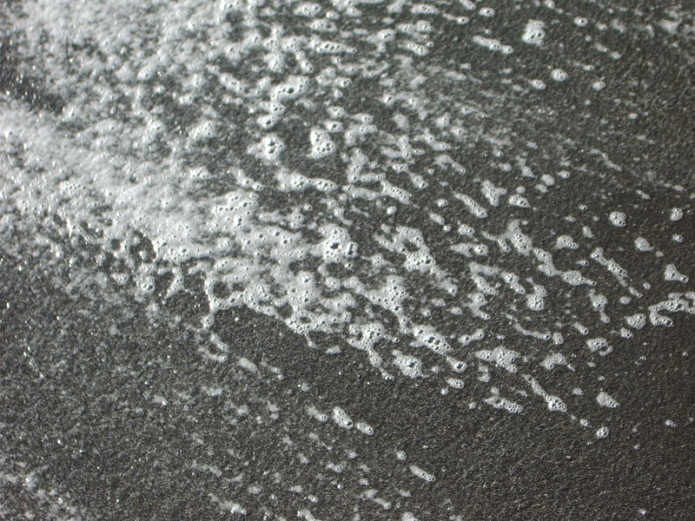I am happy to announce that from December onwards you can join a weekly session based on my 25 years of working with the voice. I call it Voice of Dao.
Here is the idea, in English and Chinese.
(You can also find this information and more in Chinese-only on http://hansuna.blogspot.tw/)

DESCRIPTION OF VOICE OF DAO / 聲音之道
What is ‘Voice of Dao’? 何謂”聲音之道” ?
In the Voice of Dao exercises, sound is used as a powerful tool to experience the present, to live (in) it, and to transcend commonly perceived dichotomies (like mind and body; I and other). There are no technical requirements for these simple exercises: anyone can join anytime. The four starting points are familiar to everyone, but few people use these resources to the full. They are
在”聲音之道”的修練中,聲音被當作一個體驗當下、感受存在、與超越身心、人我對立的有力工具。進行這種單純的修練並不需要具備特別的技能,任何人都可以在任何階段加入學習。這種修練由眾所周知但罕見深入的四條門徑展開,它們分別是:
- breath
- resonance/harmonics
- focused attention
- silence
1.呼吸 2.共鳴/和聲 3.集中凝神 4.靜默
What will I learn?
You will learn how to let these four elements help you achieve a deeper sense of self. Like tai-chi or yoga, the benefit of the exercises is gradual. By repeating exercises time and again, their ‘resonance’ builds up and slowly penetrates deeper through the surface layers of the self.
我能學到什麼 ?
你將學會運用這四個元素達到對自我的深層覺知。如同太極或瑜珈,這種修練的好處是累積而成的。藉著反覆練習,它們的共振效果逐漸放大,慢慢穿透表象而觸及自我的深處。
What are the benefits of this practice?
Voice of Dao may have a number of effects. You will experience and learn to use new aspects of your voice, which is your primary tool for communication. By extension, you will experience yourself more as sound – even as music. By tapping into creative undercurrents of being human (be they of a ‘rhythmic’, a ‘resonant’ or even a silent nature), fixed perceptions about the self, the world and about music and sound loosen up. This process enables new feelings, thoughts, ideas and connections to appear and to grow.
這種修練的益處為何?
”聲音之道” 有多種效益。聲音本是溝通的原始工具,你將體驗並發展出自己聲音的新風貌。藉著這樣的延伸,你的自我將如實由聲音傳達出來,甚至宛若音樂。找到生而為人的創造性潛能(無論他是一種旋律,一種共振,還是滿腔靜默),將會鬆動我們原本對自己、對世界、對音樂和聲音的成見。這個過程能引進新的感受、思想、意念,與連結,使自我彰顯與茁壯。
What does it cost?
After an introductory class, you can write-up for four sessions each time. An introductory is 400 NT$ and can be paid in cash. Then you can decide to register for four classes a time, and pay NT$ 1500 when you come for the first of four classes. You may skip classes and spread your attendance over a longer period. Classes will sometimes be interrupted when Mark travels abroad, which will be announced to the mailinlist of the participants.
To register send an email to Una Kao: unakao@yahoo.com.tw.
課程的費用如何?
在第一堂的導引課之後,你可以登記每次共四堂的演練課。導引課為台幣 400元,當日現金支付。如欲參加後續的演練課,每次請預付1500元。四堂課可依個人方便隨時參與,無須連續進行。
Where and when?
Sessions are held first at the training Centre of Can June or in the concert stage/theatre of Daan park. Starting time is 10 o’ clock and the class is finished at 12 o’ clock.
The first session was held on Monday December 10, 2012. Check the latest post for the latest dates.
Please let us know if you would like to come, but are not available on monday mornings, and tell us your preferred dates. Send an email to Mark van Tongeren (mark@fusica.nl) or Una Kao (unakao@yahoo.com.tw).
Here at the blog of Hans and Una, you can find details and more in Chinese.
上課的時間與地點
原則上都是周一早上在師大附近進行,未來有機會依需求調整時間與日期。出席請簽到,每次的演練是一小時,十點開始,結束後還會有15分鐘的靜躺放鬆時間。
Do I learn overtone singing?
This practice is beneficial if you want to learn overtone singing, but it is not the place to receive direct instructions in this vocal technique. Please refer to the Overtone Singing workshops for more information on learning to sing overtones.
我會學到泛音的技巧嗎 ?
“聲音之道 “的演練將有助於學習泛音,但這個演練本身並不進行泛音技巧的指導。如果對學習泛音感興趣,可以參考泛音學習營的相關資訊。
And who is the teacher?
For twenty-five years Mark van Tongeren has studied music, sound and voice, constantly seeking to enrich his activities as a performer with fresh insights from academic research, and vice versa. He travelled extensively in Siberia and Europe studying vocal sound and music with a variety of teachers, most notably Tuvan throat singers and the German musician and zen-teacher Michael Vetter. He worked many years with Silo Theater, is part of the seven-piece collective for musical improvisation Oorbeek, and most recently founded the vocal laboratory Paraphonia, with Rollin Rachele and others. He holds an MA in ethnomusicology (University of Amsterdam) and expects to receive a PhD in practice-based artistic research in 2013 (at University of Leiden). His methods for Voice of Dao are derived from music and theatre training techniques, chanting, singing and improvisation from many traditions, Buddhist meditation, music therapies, yoga and so on. They are informed by in-depth studies of disciplines like acoustics, science of sound and the singing voice, music anthropology, musicology and so on.
老師簡介
馬克范湯可鄰在音樂、聲音、與人聲方面有25年的研究經歷,他持續以學術研究和多元性的表演活動來滋養彼此的深度和廣度。他還深入西伯利亞與歐洲各地,師從人聲與民族音樂的各類能人專家,例如吐瓦的喉唱歌手,以及德國的前衛音樂家暨禪學大師米歇爾‧費特。他曾與物件劇場「筒倉劇團」共事多年,也是七人即興音樂團體「歐貝」的成員之一,近年還與羅林拉契里成立了人聲實驗團體「泛聲」。他在阿姆斯特丹大學取得民族音樂學的碩士學位,並將在2013年於萊登大學獲致表演藝術博士學位。他自創的“聲音之道 “訓練方法 ,融合了他在音樂與劇場方面的專業訓練,以及佛教冥想、音樂治療、瑜珈等等身體經驗。這個方法背後的理論基礎,包括音響學、聲音與演唱的科學、音樂人類學、音樂學等等。
Disclaimer
It is understood that this practice allows you, the student, to work on yourself with the help of a teacher. No guarantees for any effect whatsoever can be expected. It is the student’s responsibility to judge whether any exercise or all of them are beneficial or not and to skip exercises that seem unfitting.
聲明
“聲音之道 “的練習可以讓學生在老師的協助下對自身進行工作。但這種練習並不擔保任何「功效」。其中的練習使否適用於個別的學生,或應予略過,必須由學生自身評估。
Practicalities
We appreciate if you can send an email that you wish to come, or reply to our regular mails/posts. Write to unakao@yahoo.com.tw (in Chinese or English) or to mark@fusica.nl (English only).
The open-air theatre of Daan Park is in the Northwest of the park and well indicated. The Training Centre of Canjune is at number 3, fourth floor, Lane 151, Fuxing South Road, Section 2, just 20 meters from the corner of FuXing South Road. The nearest MRT station is Technology Building.
We start at 10, so come a bit earlier! Call Una at 0953 157 815 if you have trouble finding it. You can find all this information and more on http://hansuna.blogspot.tw/






